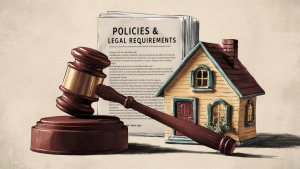
Airbnb Guest: A Host’s Guide to a Memorable Start
Facebook Twitter LinkedIn Reddit Email WhatsApp Welcome Your First Guest on Airbnb: A Host’s Guide to a Memorable Start Welcoming your first guest on Airbnb
Embarking on a real estate rehab project can be an exciting yet daunting task. Whether you’re a seasoned investor or a first-time homebuyer, budgeting effectively is crucial to ensure your project stays on track and within financial limits.
The first step in budgeting for a rehab project is to thoroughly assess the property. This includes evaluating the overall condition, identifying areas that need repairs, and estimating the costs associated with these repairs.
Steps to Assess:
Before you start the rehab, set clear and realistic goals for what you want to achieve. Are you aiming to flip the property for a profit, or are you planning to rent it out? Your goals will influence your budget priorities.
Considerations:

Once you have assessed the property and set your goals, it’s time to create a detailed budget. Break down the costs into specific categories to get a clear picture of where your money will be going.
Budget Categories:
For major repairs and renovations, always get multiple quotes from contractors. This will help you compare prices and choose the best option for your budget. Ensure that all quotes include a detailed breakdown of costs.
Tips for Getting Quotes:

Not all rehab tasks are equally important. Prioritize the essential repairs that will add the most value to the property. Focus on projects that enhance structural integrity, safety, and curb appeal.
Priority Projects:
As the project progresses, keep a close eye on your expenses. Regularly compare your actual spending against your budget to ensure you’re staying on track. Use budgeting software or apps to make this process easier.
Expense Tracking Tips:
Even with the best planning, unexpected costs can arise during a rehab project. Having a contingency fund can save you from financial stress and keep your project moving forward.
Managing Unexpected Costs:
To be successful in real estate, you must always and consistently put your clients’ best interests first. When you do, your personal needs will be realized beyond your greatest expectations.
– Anthony Hitt Tweet
Budgeting for a real estate rehab project requires careful planning and diligent tracking of expenses. By assessing the property, setting clear goals, creating a detailed budget, getting multiple quotes, prioritizing spending, and preparing for unexpected costs, you can ensure your project stays on track and within budget.

Facebook Twitter LinkedIn Reddit Email WhatsApp Welcome Your First Guest on Airbnb: A Host’s Guide to a Memorable Start Welcoming your first guest on Airbnb

Facebook Twitter LinkedIn Reddit Email WhatsApp Mastering Airbnb Policies and Legal Requirements: A Guide for Hosts If you’re considering hosting on Airbnb, understanding the platform’s

Facebook Twitter LinkedIn Reddit Email WhatsApp The Anatomy of a Perfect Airbnb Listing Creating an irresistible Airbnb listing is both an art and a science.